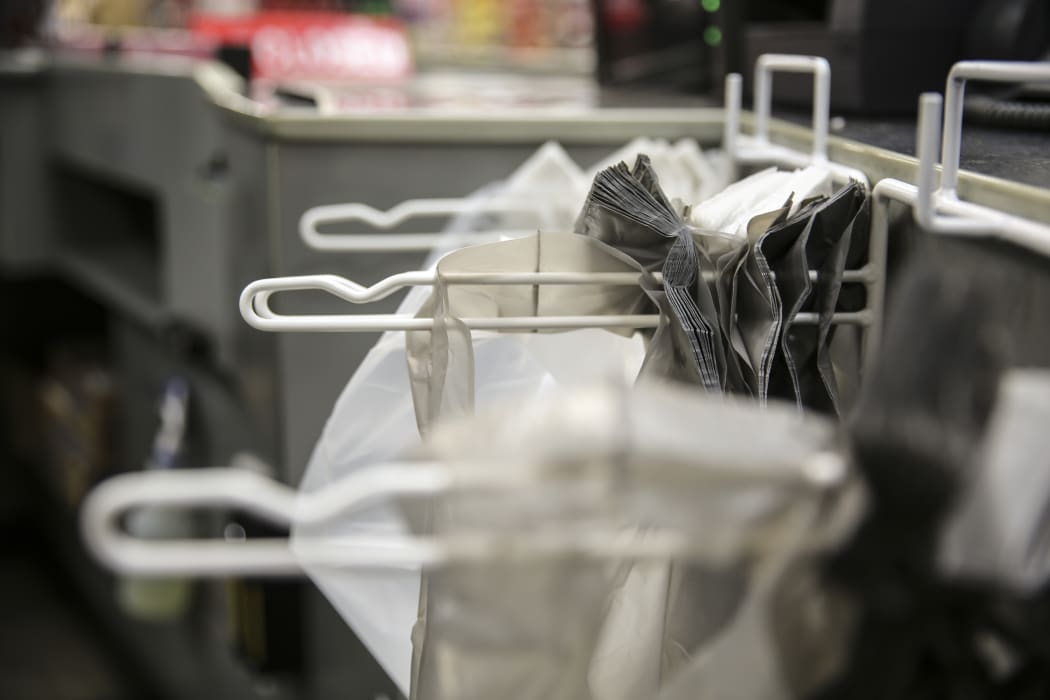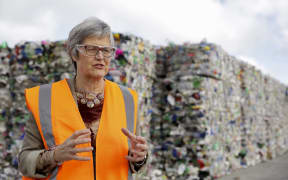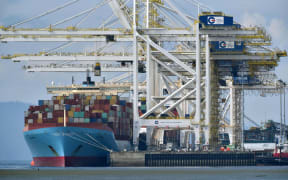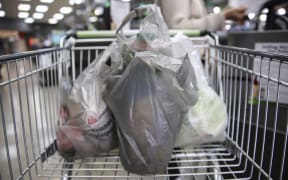New Zealand's plastic bag ban may not cover many of the thicker "emergency-style" shopping bags stocked by supermarkets, despite the government's promise it would.

Heavier duty bags - such as those which were sold for 15c at Countdown supermarkets - were also supposed to be covered by the ban. Photo: RNZ / Richard Tindiller
The ban - which comes into force today - applies to all "single-use" plastic bags with handles.
Heavier duty bags - such as those which were sold for 15c at Countdown supermarkets - were also supposed to be covered by the ban.
However, a recently released Ministry for the Environment document revealed that's not the case.
The paper - provided to National under the Official Information Act - showed officials warned that an exemption in the new rules had the "unintended consequence" of allowing more bags than desired.
The regulations include a "multi-use test" which permits certain plastic bags if they are able to carry 5kg for 100m at least 55 times. The bag would need to be certified by an independent accredited laboratory.
Officials said Countdown's emergency-style bags were not meant to meet that criteria, but the supermarket had notified them that the green and white bags had passed the multi-use test.
"We did not expect that," officials said.
Countdown has stopped selling its 15c bags regardless, but officials warned "other businesses may introduce similar bags... if they deem it to be a more profitable option".
International evidence suggested people were treating the thicker bags in the same way as thinner "single-use" plastic bags, the ministry said.
"Officials suspect that many of these bags would still end up in landfill, in litter, or only re-used a few times, if at all," the document said.
"For example, these bags have become more prevalent in litter in some Australian states with bans (e.g. Northern Territory and South Australia) compared to states without bans."
Rather than amending the regulations, officials recommended the government encourage businesses to consider the public desire for bags with a longer life-span.
Speaking to RNZ, Associate Environment Minister Eugenie Sage acknowledged the ban did not go as far as she wanted.
"[The ban] doesn't go far enough, but what is really great is it's started the conversation," she said.
"Yes, some of those 'emergency bags' will be used, but the bulk of people are shifting to bringing their own."
National MP Scott Simpson said the government liked making grand gestures, but was hopeless when it came to detail.
"Rather than get tough with retailers, [the minister] chose to just cross her fingers and hope they don't start using these heavier plastic bags," Mr Simpson said.
"We need to reduce the amount of plastic in our lives, but Ms Sage clearly doesn't have the mettle to make this happen."
While in government, Mr Simpson opposed calls for a plastic bag ban and National leader Simon Bridges recently called the move a "distraction".
In a statement, the Environment Ministry said it was unaware of any emergency-style bags that had been officially certified as "multi-use" and so none should be sold or given out to customers.
"The single-use plastic bags ban is in place to make everyone in New Zealand thinks about what's best for our environment, and how we can change our habits to better protect the natural world around us," the statement said.
"We hope businesses take a responsible approach in the alternatives they are providing customers."






